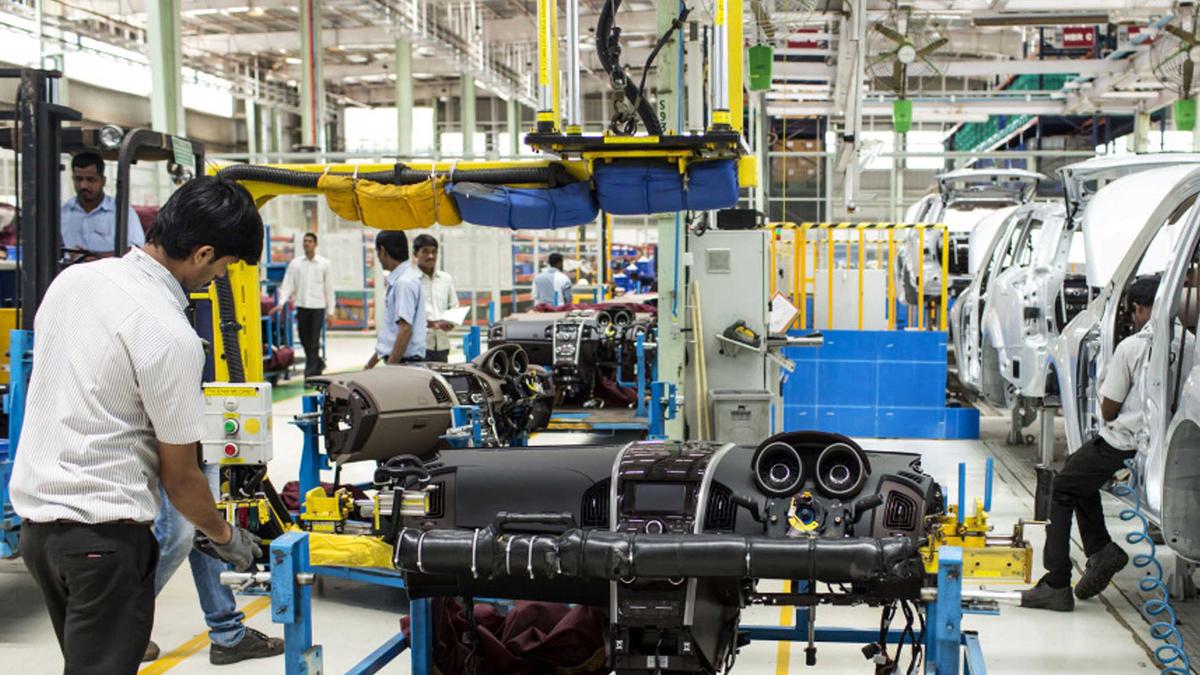 |
|
The Make in India (MI) policy, launched in 2014 with ambitious targets to increase the manufacturing sector's share in GDP and create millions of jobs, has fallen short of its goals. Despite initial optimism, India's manufacturing sector has actually experienced a decline in growth, employment, and investment, leading to a concerning phenomenon of de-industrialization.
Data from National Accounts Statistics (NAS) reveals a stark trend: manufacturing real gross value added (GVA) growth has slowed down significantly from 8.1% during 2001-12 to 5.5% during 2012-23. The sector's share in GDP has stagnated at 15%-17% for three decades, and even with methodological changes, remains modest. Simultaneously, employment in manufacturing has declined from 12.6% in 2011-12 to 11.4% in 2022-23, while agriculture's share in the workforce has risen, signifying a reversal of structural transformation.
This de-industrialization is a significant setback for India's economic aspirations. It is particularly alarming given that it occurred despite the government's efforts to improve India's ranking in the World Bank's Ease of Doing Business (EDB) index. The article argues that this index is flawed and lacks empirical foundation, suggesting that the government wasted valuable time chasing a dubious indicator instead of addressing fundamental issues in industrial policy.
The article highlights the critical need for a reimagined industrial policy that prioritizes domestic value addition, learning, and securing a dynamic comparative advantage. Protectionist measures must focus on promoting long-term competitiveness rather than providing short-term subsidies. Investment-led growth and technological catching up are crucial, requiring strong domestic R&D capabilities and publicly funded development finance institutions to provide affordable long-term credit for risky investments in technological advancements.
The article concludes by emphasizing the urgency of addressing de-industrialization through strategic policy reforms. India must shift away from misplaced priorities and focus on developing a robust industrial sector that can drive sustainable economic growth, create employment opportunities, and accelerate technological progress.
